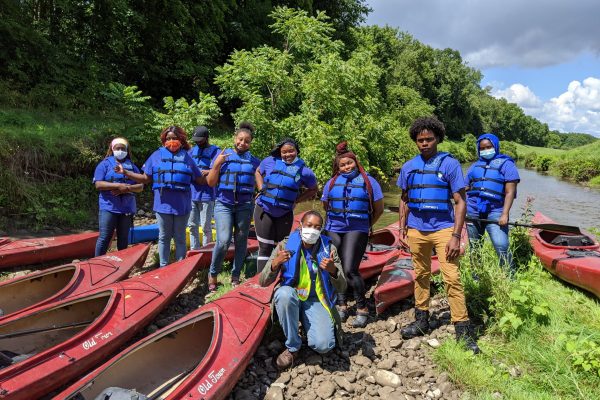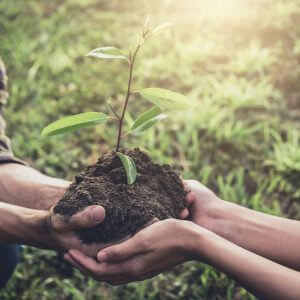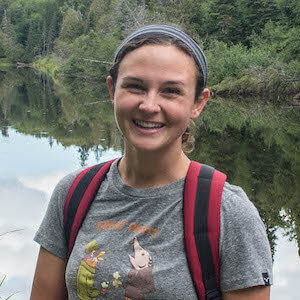River Voices: December 2020

Welcome to the December 2020 edition of River Voices. This month, we’re highlighting the importance of local community involvement for our waters. Learn how over 20 local groups are engaging youth and community members through our grant programs and explore our newest publication, “Tools for Equitable Climate Resilience: Fostering Community Leadership.” Plus, our sincere gratitude to all who generously supported us financially on Giving Tuesday and in so many other important ways with your time and talents throughout the year.
Impact in 2020 looked very different for River Network and the groups we serve. How did we help get groups, and especially youth, on the water and cleaning up the water, despite it all? Cultivating community and youth stewardship of our waters was no less important this year – in fact, it was more important than ever. Read highlights from our staff about a few of the many programs supporting these types of activities, both in and on the water, with community in mind.
“I’m particularly interested in creating opportunities for young people to intern and start careers in this field. I do believe that our advocacy impact will remain the same so long as we are able to be effective.”
Meet Sandra Meola, Director of the Coalition for the Delaware River Watershed and learn how their network of Delaware groups was able to maintain impact throughout 2020.
Gratitude can be an overused term at times, but it was more important than ever as we navigated the uncharted waters of 2020. We want to express our sincere appreciation and gratitude for you, our generous donors, supporters, members, partners, and more. Your support, whether financial or a gift of your time and talent, allows us to continue our engagement of thousands of water leaders across the country.
River Network’s Community Organizing Associate, Hannah Mico is a born and raised Michigander who loved growing up in the embrace of the Great Lakes State. Freshwater has been a part of her entire life’s journey, from Lake St. Clair where she spent her younger years, to Lake Michigan and the Grand River in her adulthood. Hear from Hannah this month in her recent blog post and through our new community leadership toolkit.
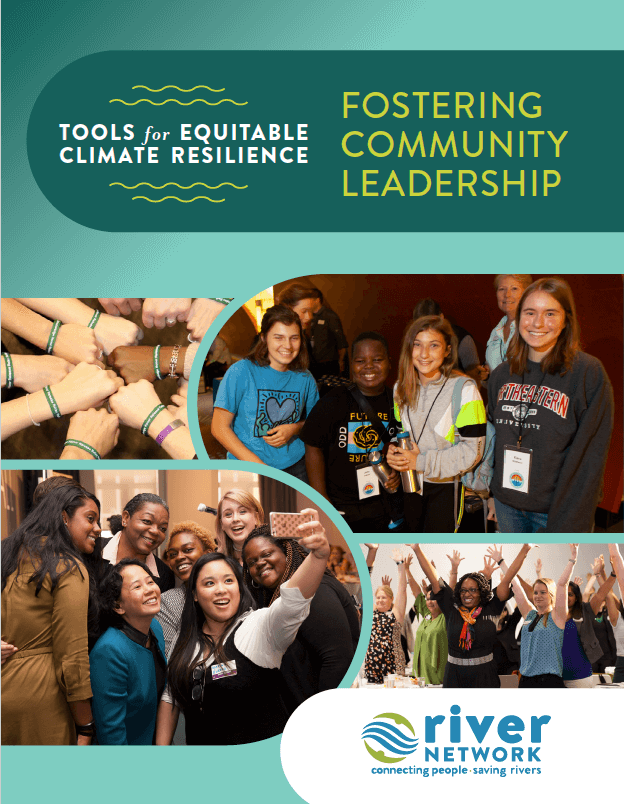 Fostering Community Leadership – A Tool for Equitable Climate Resilience
Fostering Community Leadership – A Tool for Equitable Climate Resilience
As the importance of addressing climate change continues to be well-evidenced by communities combatting ever-more-frequent flooding, fire, and extreme weather, the environmental community finds itself at the intersection of science, equity, and justice – yet again. River Network is working to identify solutions for equitable climate resilience planning: one such solution is the development and elevation of grassroots community leaders.
Read more from River Network’s Hannah Mico and download the new toolkit.
You don’t need to be a Clean Water Act expert to put it to good use. Get to know this landmark US water policy in our introductory video, produced in collaboration with Resource Media.
Check out our new video to meet 2020 Compton Award recipient Daryl Vigil (Jicarilla Apache, Jemez Pueblo, Zia Pueblo) and hear about his relationship to water and COVID-19’s impacts.
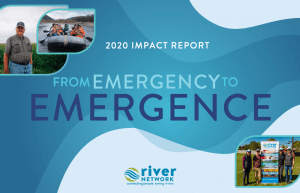 As was true for so many this year, the pandemic brought our work and our outlook to a sudden stop. Instead of becoming paralyzed by uncertainty, River Network moved swiftly. We adapted our programs and projects, creating spaces for dialogue and exchange for our nation-wide community comprised of over 6,500 community groups, nonprofit organizations, agencies, tribes, and utilities working at the local level for clean water and healthy rivers. Read all about what our year looked like and how we are helping the network move from emergency to emergence in our 2020 Impact Report.
As was true for so many this year, the pandemic brought our work and our outlook to a sudden stop. Instead of becoming paralyzed by uncertainty, River Network moved swiftly. We adapted our programs and projects, creating spaces for dialogue and exchange for our nation-wide community comprised of over 6,500 community groups, nonprofit organizations, agencies, tribes, and utilities working at the local level for clean water and healthy rivers. Read all about what our year looked like and how we are helping the network move from emergency to emergence in our 2020 Impact Report.
Events & Member News
Join Our Team!
River Network is looking for temporary support for our Marketing and Communications needs while staff is on leave in early 2021. We are specifically seeking proposals from those with expertise in nonprofit marketing and communications, social media, WordPress website management, copy editing, writing, and graphic design.
Bolstering Growth in Opportunity Zones
Dec. 3, 8, & 15; 1 – 3p ET
This webinar series from the White House Opportunity and Revitalization Council and HUD will assist participants in developing their own action plan to support short- and long-term community objectives for potential investments in designated Opportunity Zones. National and local experts will provide illustrative examples, tips, and resources.
CWEA Stormwater Virtual Seminar
Dec. 9 & 10; 8:30a -12:30p ET
The Chesapeake Water Environment Association’s Stormwater Seminar is designed to facilitate information exchange among members of the regulated stormwater community as the universe of MS4 permittees continues to grow. Topics include emerging pollutants, integrated water planning, BMP performance monitoring, and innovative projects and technologies.
Five Star and Urban Waters Restoration Grant (RFP)
Deadline Jan. 28
The National Fish & Wildlife Foundation and partners seek applications for the Five Star & Urban Waters Restoration program, which develops community capacity to sustain local natural resources through modest financial assistance to diverse local partnerships focused on improving water quality, watersheds, and their species and habitats.
Virtual River Ecology and Geography Course
June 9-29, 2021
Learn how to utilize rivers and riparian habitat as the context to meet the Colorado 2020 Science standards (NGSS) through observations, explorations, discussions, and journaling to create three-dimensional, phenomenon and problem-driven science learning experiences. Participants will explore the three major components of a river ecosystem.
Science Corner: Dragonfly Mercury Project on the Wekiva River
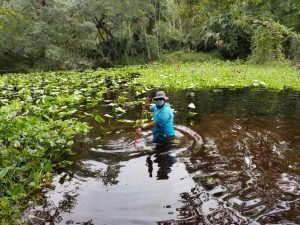 The latest from our science team.
The latest from our science team.
Fed by both natural springs and surface runoff, central Florida’s Wekiva Wild and Scenic River (WSR) is a “partnership” WSR managed jointly by a local management committee in coordination with the National Park Service (NPS).
For the second year, Friends of the Wekiva River has engaged volunteers to collect dragonfly larvae as part of the national Dragonfly Mercury Project. Because dragonfly larvae live in the water and eat insects, they bioaccumulate mercury and can serve as indicators of toxic mercury. With the support of a NPS-River Network WSR Community Watershed Science award, Friends of the Wekiva built on their work to collect data on the condition of the river. Project coordinator, Ashley Konon notes that “[e]ven with the restrictions that we faced from COVID-19, 18 community scientists participated for a total of over 100 hours of volunteer time. The results from this project can help us understand mercury levels in the river basin and what effects that may have on the local wildlife and human population.”


